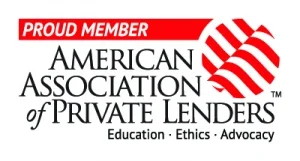First-time home buyers often face unique challenges when purchasing their first home. Fortunately, there are numerous programs designed to assist them with down payments, closing costs, and other financial hurdles. This article explores various programs available for first-time home buyers, including federal, state, and local options.
Federal Programs
FHA Loans
The Federal Housing Administration (FHA) offers loans with lower down payment requirements and more lenient credit criteria. Benefits include:
- Low Down Payment: As low as 3.5% for credit scores of 580 or higher.
- Flexible Credit Requirements: Minimum credit score of 500 with a 10% down payment.
VA Loans
The Department of Veterans Affairs (VA) provides loans for veterans, active-duty service members, and eligible spouses. Key features include:
- No Down Payment: 100% financing available.
- No Private Mortgage Insurance (PMI): Reduces monthly payments.
- Competitive Interest Rates: Often lower than conventional loans.
USDA Loans
The U.S. Department of Agriculture (USDA) offers loans for rural and suburban home buyers. Program highlights include:
- No Down Payment: 100% financing for eligible areas.
- Low Mortgage Insurance: Reduced monthly costs compared to conventional loans.
- Income Limits: Designed for low- to moderate-income families.
Fannie Mae and Freddie Mac
These government-sponsored enterprises provide various programs to assist first-time buyers:
- HomeReady (Fannie Mae) and Home Possible (Freddie Mac): Offer low down payment options (as low as 3%) and flexible credit requirements.
- Credit Flexibility: Accepts non-traditional credit histories.
State and Local Programs
Many states and local governments offer programs to support first-time home buyers. These can include grants, low-interest loans, and tax credits. Key programs include:
State Housing Finance Agencies (HFAs)
Each state has an HFA that offers various programs, such as:
- Down Payment Assistance: Grants or loans to help cover down payment and closing costs.
- Mortgage Credit Certificates (MCCs): Provide tax credits to reduce federal income tax liability.
Local Non-Profit Organizations
Non-profits often offer homebuyer education, counseling, and financial assistance. Examples include:
- Neighborhood Assistance Corporation of America (NACA): Provides no-down-payment, no-closing-cost mortgages.
- Habitat for Humanity: Offers affordable homeownership opportunities through sweat equity and community involvement.
Additional Resources
Home Buyer Education Courses
Many programs require the completion of a home buyer education course. These courses cover:
- Budgeting and Financial Planning: Helps buyers manage finances and prepare for homeownership.
- Understanding Mortgages: Explains different mortgage options and processes.
- Home Maintenance: Teaches basic maintenance and upkeep skills.
Employer-Sponsored Programs
Some employers offer home-buying assistance as part of their benefits package. This can include:
- Down Payment Assistance: Grants or loans provided by the employer.
- Partnerships with Lenders: Access to special mortgage programs or discounts.
How to Apply for First-Time Home Buyer Programs
Research Available Programs
Start by researching federal, state, and local programs to determine which ones you may be eligible for.
Gather Necessary Documentation
Prepare required documents such as proof of income, tax returns, credit reports, and identification.
Complete Home Buyer Education
Enroll in and complete any required homebuyer education courses.
Contact a Housing Counselor
Reach out to a HUD-approved housing counselor for guidance on available programs and the application process.
Apply for Assistance
Submit applications for the programs you qualify for, providing all necessary documentation and information.
Conclusion
First-time home buyers have access to a variety of programs designed to make homeownership more accessible and affordable. By exploring federal, state, and local options, and taking advantage of available resources, you can find the support needed to purchase your first home. Understanding these programs and how to apply can significantly ease the path to homeownership.


